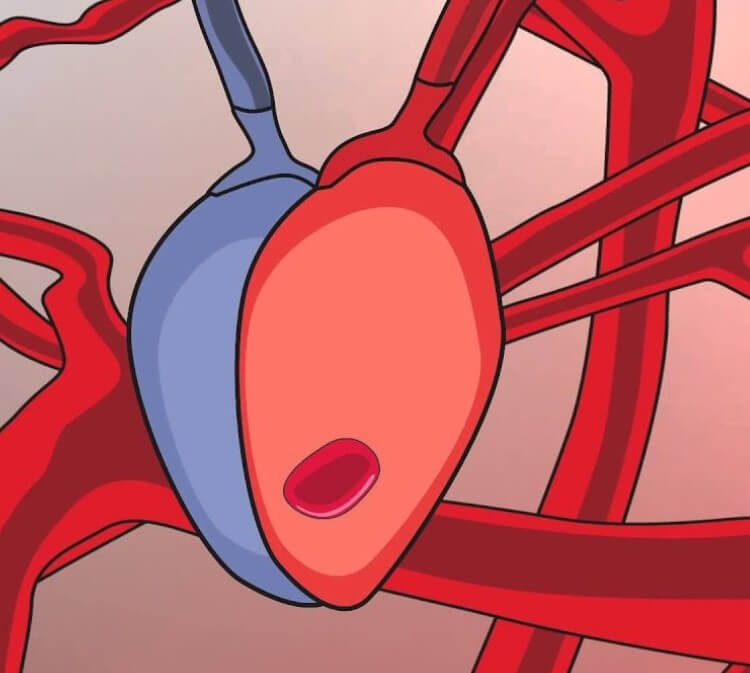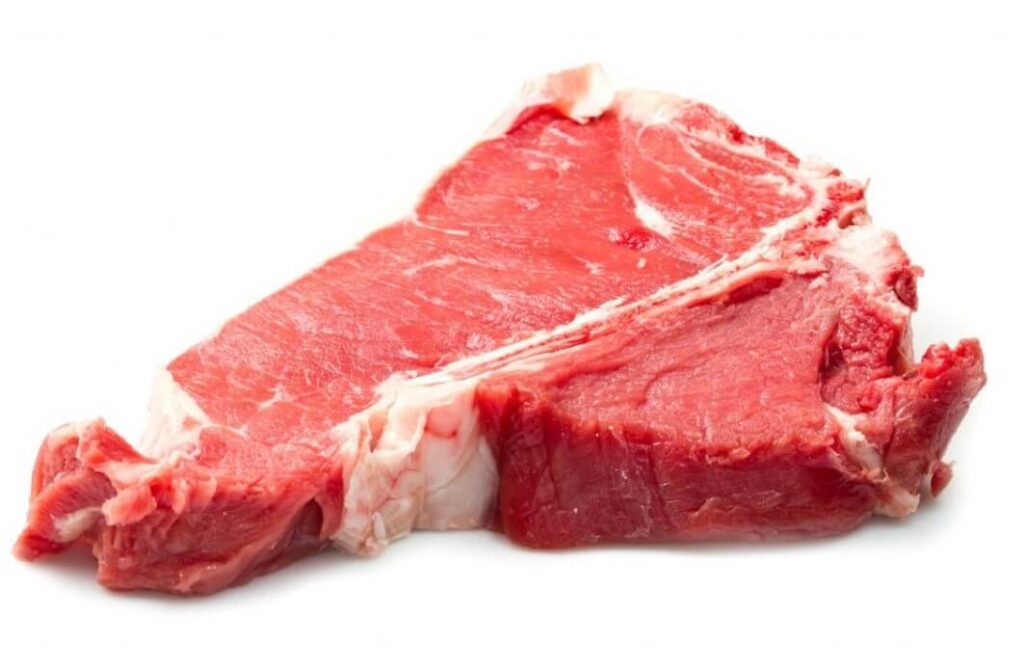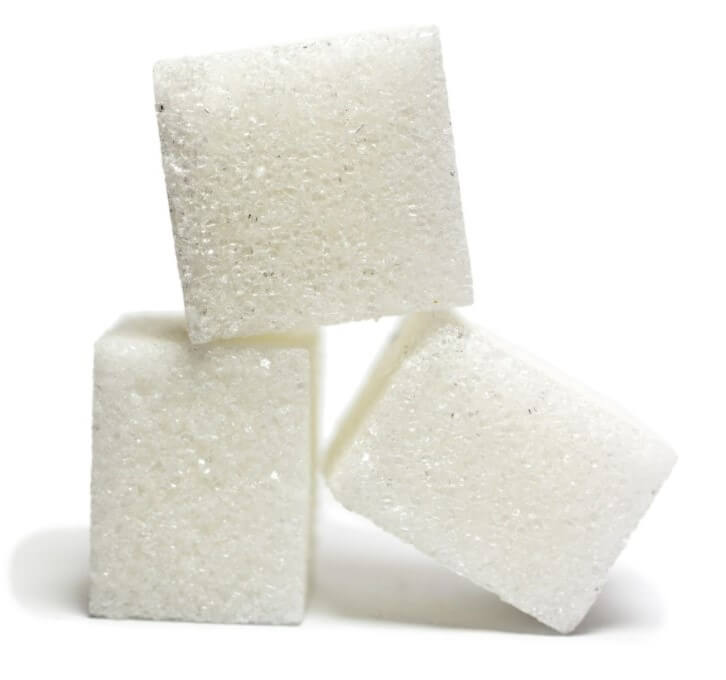Many aspects of blood circulation can be affected by the type of diet. The fluidity of the blood and the flexibility of the arteries depend on what we eat. Find out!
Problems in the circulatory system are common and can generate various health problems. That is why it is important to eliminate these 4 foods that affect blood circulation from the diet. Thus we avoid possible damage to the arteries and veins.
A diet rich in fats, sugars, and some minerals is harmful to vessels and normal blood flow. But not only diet influences the good condition of the circulatory system. We know other aspects and healthy lifestyle habits that help improve it.

Main effects on blood circulation
The circulatory system is made up of the heart and a set of veins and arteries through which blood moves. Its main function is to transport oxygen and nutrients, also helping to eliminate waste. Any element that hinders the passage of blood becomes an obstacle to normal flow .
As a consequence, it can appear from a slight discomfort to more serious vascular complications. Most of them are common and treatable, although some are serious. These include the following:
- Atherosclerosis
- Aneurysms
- Blood clots
- Cerebrovascular accident
In a more benign way, varicose veins, hemorrhoids or cellulite may appear. They are less serious disorders, but they end up seriously damaging circulation, affecting the quality of life of the people who suffer them.
Read more: The best foods high in potassium
4 foods that affect blood circulation
The symptoms and treatment of each of the diseases is different. But there are a number of guidelines and routines that can be followed to prevent the onset and future complications of most disorders. We detail below those foods that it is preferable to remove from the diet to have a better blood flow.
1. Foods rich in sodium

The presence of this mineral abundantly in the diet affects both the arteries and the smallest vessels. Sodium promotes water retention, thereby increasing blood volume . And this in turn causes a rise in blood pressure that ends up damaging the vascular walls.
It is generally advised to avoid all those foods that provide a large amount of sodium. Among them, it is worth highlighting processed products such as pastries, sausages, sauces, broths and commercial dressings. You also have to be careful with canned fish, olives and cheese.
2. Red and processed meat

Eating red meat on its own is considered a risk factor for heart disease and blood circulation problems. But not all affect equally. The degree of processing that the meat has is one of the key factors in determining it .
In an analysis of scientific studies, it was concluded that there is a strong relationship between the consumption of processed red meat and cardiovascular health. In contrast, the binding is almost null with the one that is raw.
The difference between the two types of meat can be explained by the higher presence of sodium and other additives in processed meat products. The study specifically talks about groceries like bacon, hot dogs, sausages, salami and other cold cuts .
3. Foods with hydrogenated fats
This type of lipid or trans-fatty acid has long been in the sights of experts. Although they are present naturally in some meats, many countries have regulated their use by the food industry, due to the negative effects on health.
The scientific evidence has shown that trans fats increase the presence of triglycerides and LDL cholesterol in the blood. This excess of lipids leads to poor circulation. Consequently, oxygenation and the arrival of nutrients to all body cells worsens.
Its maximum consumption has been estimated at 1% of the total daily energy intake. The best way to reduce it is by eliminating industrial products from the diet. Those that contain the greatest presence of trans fats are the following:
- Vegetable margarines.
- Pastries and industrially produced bakery: cookies, muffins, cakes.
- Fast foods.
4. Added sugars

These are one of the ingredients or components that cause more health problems today, also for circulation. They do not provide nutrients and, on the other hand, have a high caloric value. This leads to a higher likelihood of obesity, which results in poorer heart health.
On the other hand, eating too much sugar increases your risk of type 2 diabetes . High blood glucose levels affect the condition of the arterial and venous walls. Over time, they are more fragile and less functional, so the possibility of developing cardiovascular disease grows.
Tips to improve blood circulation
Problems in the circulatory system can be caused by several factors; some of them related to diet. Apart from eliminating the 4 foods that we name you and that affect blood circulation, there are other positive recommendations that can be adopted on a day-to-day basis:
- Increase the consumption of foods rich in vitamin C that protect the walls of the blood vessels. We find it in fruits such as currants, kiwi, orange, strawberries or pineapple.
- The omega 3 in oily fish inhibits the accumulation of platelets and the risk of blood clots.
- Add spices to foods such as garlic, pepper, coriander, cinnamon, ginger, and turmeric.
- Eat red fruits for their contribution of antioxidants , especially anthocyanidins . These have the ability to lower blood pressure and platelet aggregation, as well as improve the dilation of the arteries.
In parallel, we must avoid harmful lifestyle habits:
- Avoid tobacco, as it has a damaging effect on the walls of the vessels.
- Avoid sedentary lifestyle.
- Counteract rest times by massaging or rubbing the body to improve circulation.
Discover:The 8 benefits of whey protein
There are foods that affect blood circulation
We have told you about 4 foods that affect blood circulation, as they damage the state of the arterial walls, increase blood pressure, raise cholesterol and triglycerides. To protect the circulatory system, it is necessary to do without red meat, sodium, added sugar and hydrogenated fats .
A diet rich in fruits, vegetables, legumes, oily fish and nuts is the best option to take care of the heart and blood vessels. All this, accompanied by good habits such as physical activity, the lack of stress and the absence of tobacco.

